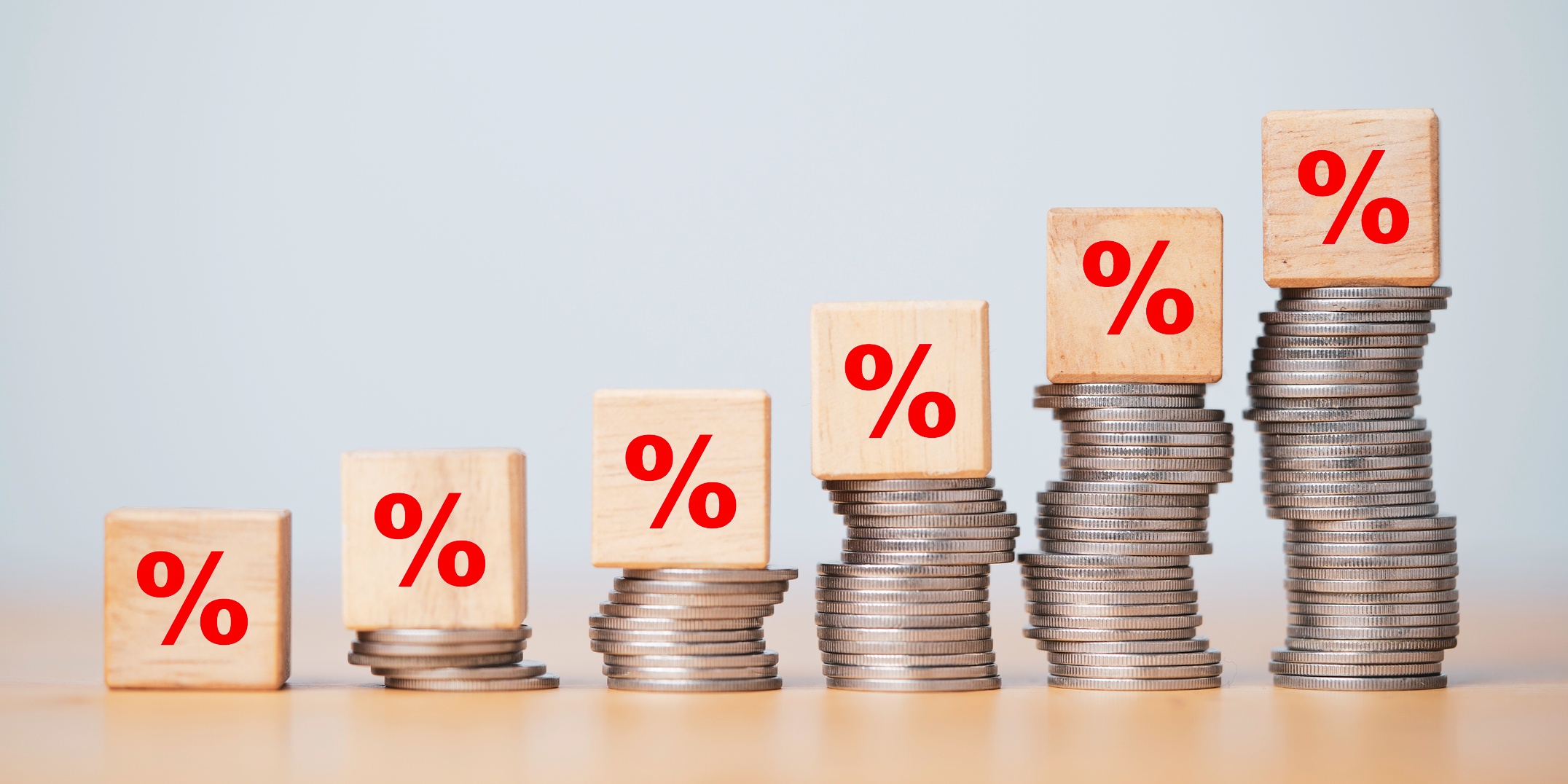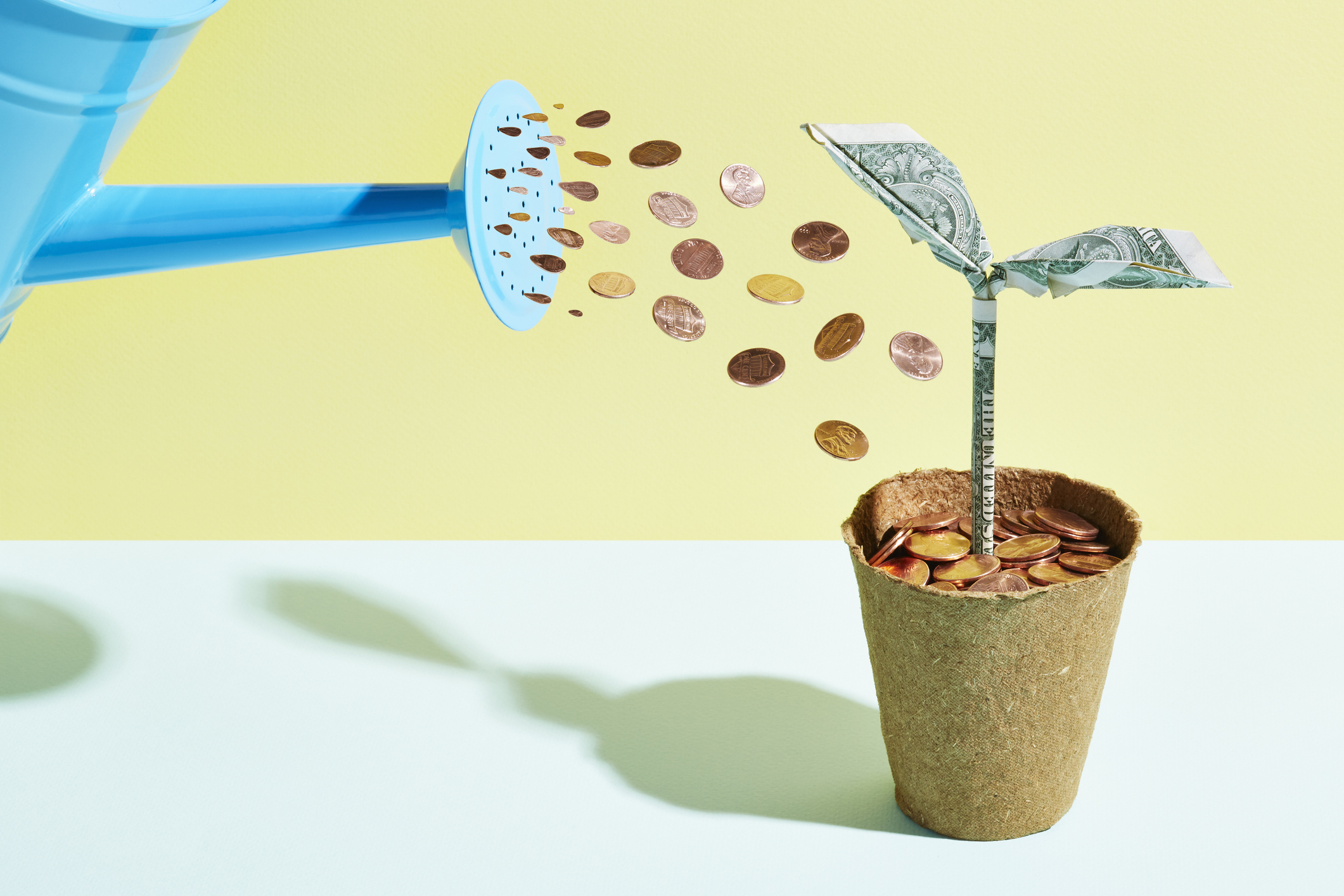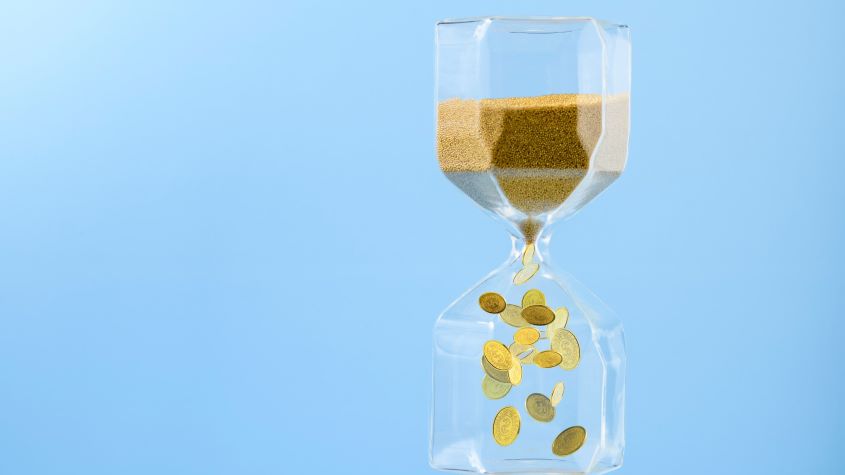£250bn sitting in low interest rate savings accounts
Data from the Bank of England showed billions of pounds are sitting on accounts earning no interest as the biggest lenders fail to pass rates on to consumers. Better rates may not stick around for long, so this is why you need to act fast.


Get the latest financial news, insights and expert analysis from our award-winning MoneyWeek team, to help you understand what really matters when it comes to your finances.
You are now subscribed
Your newsletter sign-up was successful
Want to add more newsletters?
A whopping £250bn is sitting in savings accounts earning zero interest, the Bank of England (BoE) has found.
The Bank has urged savers to move their money – with some fixed accounts, for example paying over 6%, and easy access accounts paying over 4%.
The data follows a 14-point plan by the Financial Conduct Authority that will force savings providers to justify low interest rates on easy access savings accounts.
Try 6 free issues of MoneyWeek today
Get unparalleled financial insight, analysis and expert opinion you can profit from.

Sign up to Money Morning
Don't miss the latest investment and personal finances news, market analysis, plus money-saving tips with our free twice-daily newsletter
Don't miss the latest investment and personal finances news, market analysis, plus money-saving tips with our free twice-daily newsletter
The FCA said banks with lowest savings rates will face “robust action” as they have been too slow to pass the Bank of England’s interest rate hikes on to savers.
The data revealed 75% of consumers with a savings account hold savings with their current account provider. But the nine biggest banks in the UK are the ones offering the worst rates.
“The gulf between Base Rate hikes and the increase in interest on easy-access accounts is also highlighted by the Bank’s figures,” says Laura Suter, head of personal finance at AJ Bell.
“The average easy-access account was paying just 0.09% before the Bank started its current rate hiking cycle at the end of 2021, and has only increased to 1.46% in June – despite Base Rate having risen by 4.9 percentage points since then.”
As part of its new plan, the FCA will require banks to do more to encourage savers to move their money to higher paying accounts.
It has been smaller, challenger banks that have been upping their rates, and currently you can get rates of over 4% on easy access accounts and over 6% on fixed savings.
But, if you’re looking to take advantage of these rates, you should act fast as deals are disappearing just as quickly as they come into the market.
Currently no savings account beats inflation, which came in at 7.8% in June. But if your savings are languishing in a current account, or a savings account with a poor interest rate, it still makes sense to find a better place for your money.
What are the best savings accounts on offer?
- If you’re after an easy access account, Chip is offering 4.26% on its Instant Access Saver. You can open it with as little as £1.
- First Direct is offering 7% on its regular saver. You can pay in between £25 to £300 a month, but you have to be a First Direct current account holder. The rate is fixed for the first 12 months, but it may drop after that. You can also get a £175 switching bonus.
- Al Rayan Bank is offering 6.01% on its one-year fixed account.
Should you have a cash savings account?
It’s always a good idea to keep an amount of cash on hand to cover any unexpected expenses.
Easy access accounts are a good place to keep your emergency savings because, as the name suggests, you can withdraw your money at any time.
But even though rates are up they still don’t beat inflation, meaning in real terms, cash earning an interest rate below inflation is losing value. So, for long-term savings, investing is still a good option.
But the current environment means now is a good time to review your cash and look to place it somewhere where you can earn a decent rate of interest.
“We often see people hold on to cash when the markets are volatile, but remember, market volatility is normal – and as long as you are only investing money for the long term, you can potentially grow your money to beat inflation and see a greater benefit from compounding,” says Kalpana Fitzpatrick, senior digital editor of MoneyWeek and author of Invest Now.
Get the latest financial news, insights and expert analysis from our award-winning MoneyWeek team, to help you understand what really matters when it comes to your finances.
Nic studied for a BA in journalism at Cardiff University, and has an MA in magazine journalism from City University. She has previously worked for MoneyWeek.
-
 Do you face ‘double whammy’ inheritance tax blow? How to lessen the impact
Do you face ‘double whammy’ inheritance tax blow? How to lessen the impactFrozen tax thresholds and pensions falling within the scope of inheritance tax will drag thousands more estates into losing their residence nil-rate band, analysis suggests
-
 Has the market misjudged Relx?
Has the market misjudged Relx?Relx shares fell on fears that AI was about to eat its lunch, but the firm remains well placed to thrive
-
 Lloyds, Santander and HSBC hike savings rates
Lloyds, Santander and HSBC hike savings ratesBanks and building societies have been raising their savings rates as the base rate continues to rise. Our round-up of all the savings rates hikes.
-
 Paragon raises rate on one-year fixed cash ISA to 5.75%
Paragon raises rate on one-year fixed cash ISA to 5.75%Paragon Bank ups its one-year fixed cash ISA rate to 5.75% - is it enough to top the table?
-
 Lessons from the £11m pension saver ‒ how to build a better pension
Lessons from the £11m pension saver ‒ how to build a better pensionAs an FOI reveals the UK’s most successful pension saver has built an £11m pot for their retirement, we outline the tactics you need to follow to build your own retirement warchest.
-
 NS&I hikes Premium Bond prize fund rate to 24-year high
NS&I hikes Premium Bond prize fund rate to 24-year highThe Premium Bond prize fund rate will go up again next month, hitting its highest level since 1999. NS&I is also raising the interest rate on a range of savings products. We explain what the changes mean for you.
-
 Coventry Building Society launches new best easy access savings account
Coventry Building Society launches new best easy access savings accountCoventry Building Society's deal tops our easy access savings account list, but could your cash be put to better use?
-
 NS&I boosts fixed-term savings rates
NS&I boosts fixed-term savings ratesThe NS&I, the government-backed savings institution has mirrored recent rate rises seen elsewhere in the market.
-
 How are Premium Bonds prize winners notified – and who is Agent Million?
How are Premium Bonds prize winners notified – and who is Agent Million?We look at how Premium Bonds winners are notified and how the winnings get paid. Plus, who is Agent Million?
-
 Savings inertia - why we should all be obsessed with interest rates and savings accounts right now, says Kalpana Fitzpatrick
Savings inertia - why we should all be obsessed with interest rates and savings accounts right now, says Kalpana FitzpatrickAnalysis Are savers still missing out on hundreds of pounds by not moving their cash for better interest rates?
